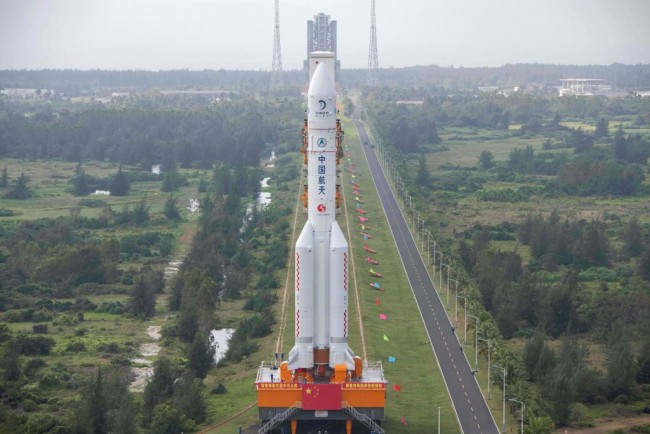China is a rising power in the world, looking to challenge US dominance in every way. One of the sectors not being considered seriously enough is the space sector. With Russian cooperation in space steadily declining, and Chinese presence and influence catching up quickly, Congress must take action to maintain America’s lead over our newest rival in the modern space race.
Russia has been steadily losing power in the space sector with American and European programs gaining independence from their launch and cargo vehicles. With Russia’s plan to pull out of the International Space Station in 2024, earlier than all other countries involved, replacement systems are in development to be able to continue operations up to 2030. This comes at the same time China is nearing completion of their ambitious 1992 China Manned Space Program. They are actively building a space station, with three modules planned to be in place by the end of the year. Upon completion, China will be poised to begin their next program that parallels America’s manned space program, Artemis. These programs plan to establish a permanent residence on the Moon while developing and testing technologies that will be applied to future manned Mars missions.
China has already demonstrated advanced lunar technologies including a far-side surface lander with orbiting relay. Developing this technology had been considered, but not yet attempted by other programs. With the threat of some Chinese capabilities surpassing our own, we need to work to maintain our top position. This important sector is an indicator of advanced technological and scientific dominance, as well as military dominance.

Former president Trump took our rivalry with China very seriously. He responded to their challenges by sanctioning them in various sectors. Without the ability to sanction them in the space sector, he was still able to ramp up the competition by introducing the Space Force and re-establishing Space Command. This military action addressed half of the issue. When it came time to address the scientific aspect of the competition, the China-focused “America COMPETES Act” passed this week was extremely important. Although the Senate was able to pass a space science strategy, the House was not able to come to an agreement, and it was absent in the final version of the bill.
“If we are to compete with China in space then Congress must be unified and bipartisan in giving direction, guidance and support. This is a significant oversight by the House of Representatives and should be addressed. China is not going to wait for us to get this right.” -Mike Rogers of SpaceNews
Following 20 years of continuous human presence in space on the International Space Station, the actions we take now to develop manned missions to the Moon will determine our place in the next big space race: China versus the US for human presence on Mars. If we lag behind in our development of lunar technologies now, there may be no way to catch up in time for the finish. Congress can’t just focus on our military presence in space. They need to look ahead and work out bipartisan strategies for space science to compete in this next chapter of the space race.
